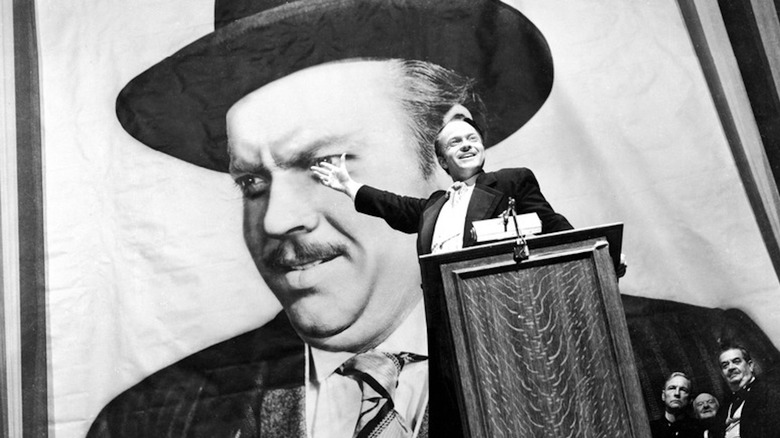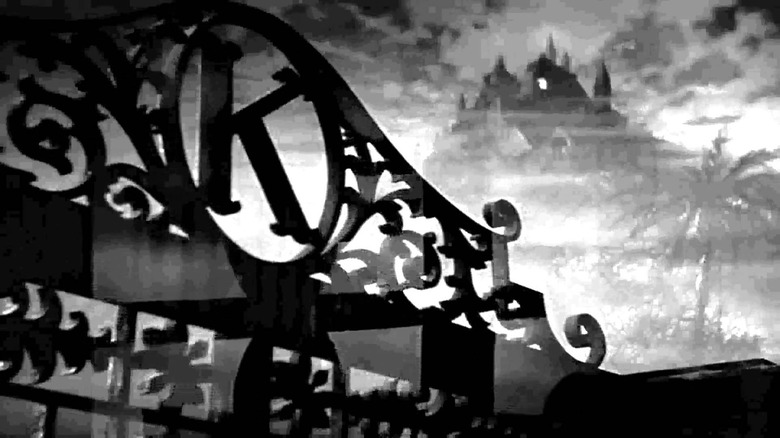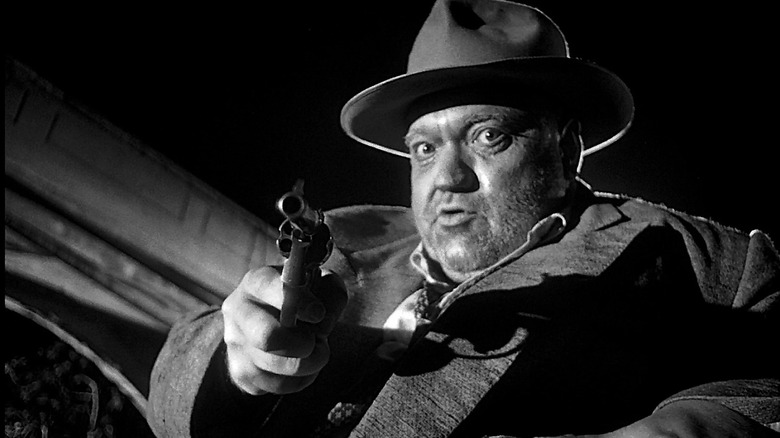Was Orson Welles A Failure? Why The Citizen Kane Director Died A Hollywood Outcast (& Legend)
When Orson Welles died on October 10, 1985, at the age of 70 he was, as ever, broke. As David Thomson noted in a lovely appreciation for The Guardian in 2009, the profound absence of money was Welles' "abiding condition." Welles had outsized appetites (and, according to his many biographers, his tendency to overeat no doubt contributed to his too-early death), but his most insatiable hunger was for filmmaking. From his medium-redefining debut, "Citizen Kane," to the posthumously released "The Other Side of the Wind," Welles was determined to maximize his time on this planet by setting in motion as many projects as possible. This unceasing activity hurt him early in his career and eventually forced him to partially finance his features by farming himself out as an actor, where his considerable skills held the greatest monetary value.
That he died broke and left so many projects unmade may render him a failure in the eyes of people who desire box office success as much as, if not more than, artistic triumph. If viewed in this narrow regard, yes, Welles was a failure. But if you take the warts-and-all long view, Welles's career looks a lot like a quixotic success.
How Orson Welles was brought low
The trouble for Welles began with his targeting of the fabulously wealthy newspaper mogul William Randolph Hearst via "Citizen Kane." Though the publisher failed in his attempt to kibosh RKO's release of the film, he did manage to bully exhibitors into pulling back on showtimes, which damaged the film commercially. The studio nevertheless greenlit Welles' sophomore effort, "The Magnificent Ambersons," and when the production went over schedule, covered the brash young director's budgetary excesses. They did not, however, allow Welles to finish the film after his 135-minute preview cut tested poorly with audiences. Welles might've had a shot at protecting his vision had he not lit out for Brazil at Nelson Rockefeller's request to make the Good Neighbor policy-promoting anthology film "It's All True." With Welles out of town, the studio allowed an editorial team led by Robert Wise to hack the movie down to eighty-eight minutes. Welles' original cut of "The Magnificent Ambersons" was likely destroyed (though archivists haven't completely given up hope that a print still exists).
Welles' wunderkind stature was effectively destroyed, as well. Losing control over "The Magnificent Ambersons" and failing to finish "It's All True" saddled him with the reputation of an impulsive, disorganized brat coasting on the true genius of screenwriter Herman J. Mankiewicz and cinematographer Gregg Toland. This perception dogged him for the rest of his life, and was ignorantly weaponized by Pauline Kael in her infamous 1971 essay, "Raising Kane."
Even though Welles's acolytes like Peter Bogdanovich effectively discredited her thesis, the stain to his image proved permanent. He was a has-been at best, and a creative fraud at worst.
He was some kind of man
Welles did himself no favors by hooking up with shady financiers throughout the last three decades of his career, but he was hardly the undisciplined charlatan some made him out to be. Though he typically lacked the resources to mount a film of polished studio quality, he possessed a remarkable clarity of vision. His editing notes on "Touch of Evil" were so exacting, a restoration team headed up by Walter Murch was able to fully reconstruct his version of the movie. The same was true of "The Other Side of the Wind," even though the film was shot piecemeal over six years.
There is a preponderance of evidence demonstrating that Welles was every inch the genius he appeared to be in the 1930s and '40s. He certainly didn't make it easy on himself, but the body of work — which includes handmade masterpieces like "Othello," "Chimes at Midnight," and "F for Fake" — speaks loudly in defense of his rare talent. That Hollywood couldn't figure out what to do with him is the industry's failure.
As for the money, we'll let Charles Foster Kane's financial advisor have the final word; "It's no trick to make a lot of money ... if all you want is to make a lot of money." All Orson Welles wanted was to make movies.


